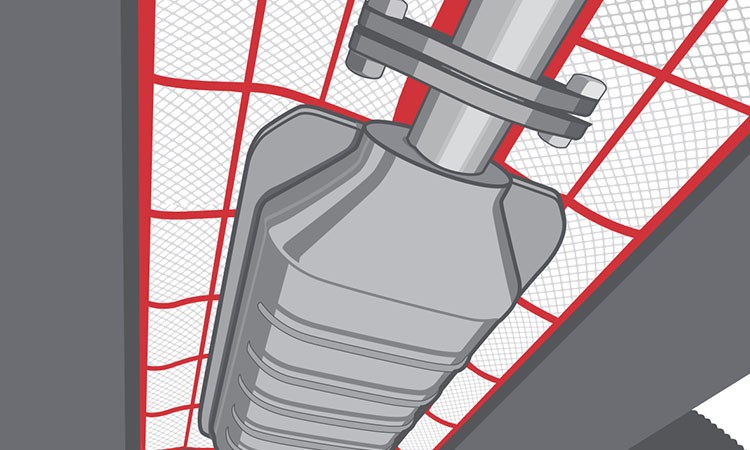Feature: adhesives built for the demands of heat shielding

As cars and trucks have evolved, heat shielding has become ever more critical to vehicle performance. Increasing electrification and use of turbochargers in smaller engines means vehicles tend to produce more heat, underscoring the need for additional shielding. Meanwhile, the trend toward lightweighting in the global automobile industry has prompted the breaking of some long-standing engineering paradigms.
That’s why many automotive manufacturers and suppliers now rely on lightweight, “peel and stick” heat shields. These are made of temperature-resistant foams and adhesives, rather than heavier, metal shields that are fastened with nuts, bolts, and rivets.
Adhesives play an important role in heat shielding applications
Much is asked of an adhesive in a heat shielding application. It has to bond securely, often to challenging surfaces, such as low surface energy (LSE) plastics, with no lift, and may be called on to take as much heat as the shielding material itself. And with vehicles driven more miles than ever before, that adhesive has to do its job for many years. Truth is, the adhesive may be just as important to the heat shielding construction as the “sandwich” of metal, fiber, and liner.
Field-tested, proven adhesives for heat shields
Avery Dennison offers multiple, high performance adhesive options that are ideal for this application.
FT 1943 — A modified acrylic adhesive offering excellent adhesion to low surface energy (LSE) substrates, with excellent environmental and chemical resistance.
FT 3014 — A general purpose acrylic adhesive designed for bonding open cell and nonwoven materials where high tack and adhesion are required in a double liner construction. Offers excellent environmental and chemical resistance.
FT 3043 — A modified acrylic adhesive offering extremely high adhesion to LSE materials while providing excellent environmental and chemical resistance.
As durable as metal fasteners, and certified to OEM specs
Avery Dennison adhesives are field tested and proven for the application with metal and fiber-based shielding products. In fact, they are just as durable as traditional mechanical fasteners.
“After continuous use, traditional heat shields can tear where they are secured by mechanical fasteners,” says Michael VanHaerents, automotive business development manager for Avery Dennison Performance Tapes. “Pressure-sensitive tape fasteners allow for a continuous bond area for the heat shield that prevents ripping or tearing—often identified as fatigue failure—that can be an issue with mechanical fasteners. Adhesive-based solutions also eliminate potential galvanic corrosion between a conventional aluminized heat shield and steel fasteners.”
He continues: “But not all adhesive tapes will be durable enough. OEMs have specifications to ensure the parts specified for their vehicles are effective. Avery Dennison is certified to OEM specifications.”
To learn more about Avery Dennison heat shield solutions, contact your account manager, or visit tapes.averydennison.com/heatshield.
